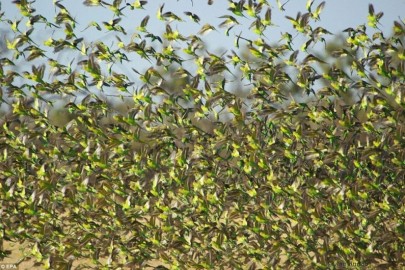As summer ends, Stephen selects two seasonal poems…
The sudden shifts in mood and imagery in Ivor Gurney‘s poetry (both between poems and within a poem) can sometimes be disconcerting and puzzling. It is tempting to ascribe these shifts to Gurney’s struggles with mental illness. But one should be wary of this temptation. I do not think that it is helpful to classify certain of Gurney’s poems (e.g., those that seem calm or lucid) as “sane” poems and others (e.g., those that seem manic or disjointed) as “insane” poems.
For a while, I attempted to make such a distinction. But I gave it up. First, I realized that it was both futile and speculative to try to deduce Gurney’s mental state at the time when he wrote a particular poem. Second — and more importantly — I decided that it was unfair to Gurney. He is what he is, and we owe it to him to accept him as he is. (I have reached the same conclusion when it comes to John Clare, whose fate was remarkably, and sadly, similar to Gurney’s.)
Thus, here is a poem about summer-into-autumn. We can say about it what we can say about all of Gurney’s poems: they came from his heart (and from Gloucestershire).
Quiet Talk
Tree-talk is breathing quietly today
Of coming autumn and the staleness over —
Pause of high summer when the year’s at stay,
And the wind’s sick that now moves like a lover.On valley ridges where our beeches cluster
Or changing ashes guarding slopes of plough,
He goes now sure of heart, now with a fluster
Of teasing purpose. Night shall find him growTo dark strength and a cruel spoiling will.
First he will baffle streams and dull their bright,
Cower and threaten both about the hill —
Before their death trees have their full delight.P. J. Kavanagh (editor), Collected Poems of Ivor Gurney (Oxford University Press 1982).
F. W. Harvey (1888-1957) and Ivor Gurney were friends. They grew up together in Gloucestershire and shared a love of its countryside. They both served in the Gloucestershire Regiment during the First World War. Gurney composed musical settings for a few of Harvey’s poems. The following poem by Harvey is, I think, a good companion piece to Quiet Talk.
Swift Beauty
Wind that is in orchards
Playing with apple-trees
Soon will be leagues away
In the old rookeries.Vaguely it arises,
Swiftly it hurries hence: —
Like sudden beauty
Blown over sense:Like all unheeded
Beautiful things that pass
Under the leaves of life,
Just touching the grass.F. W. Harvey, September and Other Poems (1925).
Harvey’s verse was, on the whole, fairly traditional and conventional. However, I sense a bit of influence from the more adventuresome Gurney in “Swift Beauty.” “Like sudden beauty/Blown over sense” has a Gurney feel to it, as does the final stanza.












Perfect! Thanks Stephen.
You’re welcome, Nige. I’m pleased you liked the poems.